If your dog tends to eat fish, you may wonder if human delicacies, such as smoked salmon, are suitable for your furry friend. Salmon has many benefits and is an excellent source of protein and omega-3 fatty acids for humans and dogs. However, while your dog can eat smoked salmon, it’s not the safest way for them to consume this type of fish.
In this article, we talk more about dogs eating smoked salmon, whether it’s safe for your dog, the effect that eating smoked salmon could have on your dog, and how to give salmon to your canine safely.

Is Salmon Good for Dogs?
Salmon is a high-protein fish that contains low levels of mercury, which is why it can be beneficial for dogs 1. It’s also a common ingredient in many high-quality dog foods.
When prepared and served right, salmon can be great for your dog, but you should discuss any diet changes with your veterinarian before implementing them, especially if your dog is sensitive or has allergies.
If you need to speak with a vet but can't get to one, head over to PangoVet. It's our online service where you can talk to a vet online and get the advice you need for your pet — all at an affordable price!
Health Benefits of Feeding Salmon to Your Dog
- It’s full of protein, omega-3 fatty acids, minerals, and vitamins.
- It nourishes your dog’s skin and coat.
- It’s easily digestible.
- It contains anti-inflammatory properties.
- It acts as an antioxidant.
However, feeding salmon to your dog can also carry risks, so always consult your vet before adding salmon or any other new food to your dog’s diet.
Risks of Feeding Salmon to Your Dog
Although eating salmon can have a positive effect on your dog, it depends on how much salmon your dog consumes and how you prepare it. There are various potential risks of dogs consuming salmon, so it’s essential to be well-informed before you give this food to your furry friend.
- Allergic reactions
- Possible parasitic diseases
- Possible salmon toxicity
- Health issues due to heavy metals inside of salmon
With so many risks of feeding salmon to dogs, you need to know how to properly prepare salmon for your canine and which salmon foods are suitable for them.

The 3 Ingredients in Smoked Salmon That Are Harmful to Dogs
1. Salt
Due to the high salt levels of smoked salmon, dogs consuming it could experience an increase of sodium in their bloodstream, causing salt toxicity.
- Vomiting
- Diarrhea
- Lethargy
- Appetite decrease
- Excessive thirst
- Excessive urination
- Tremors or seizures
- Lack of coordination
- Death
There’s a risk of salt poisoning if your dog consumes smoked salmon, so it might not be the most suitable food for your pet.
2. Seasonings
Smoked salmon often contains various seasonings, including salt, garlic, or onion powder, and dogs could experience an array of issues when consuming them. All of these seasonings are harmful to your furry friend and can cause toxicity, which is why it’s best to keep them away from your canine.
- Lethargy
- Weakness
- Vomiting
- Appetite decrease
- Dehydration
- Depression
All members of the allium family are toxic to canines, so try to avoid foods that contain such seasonings, including smoked salmon.
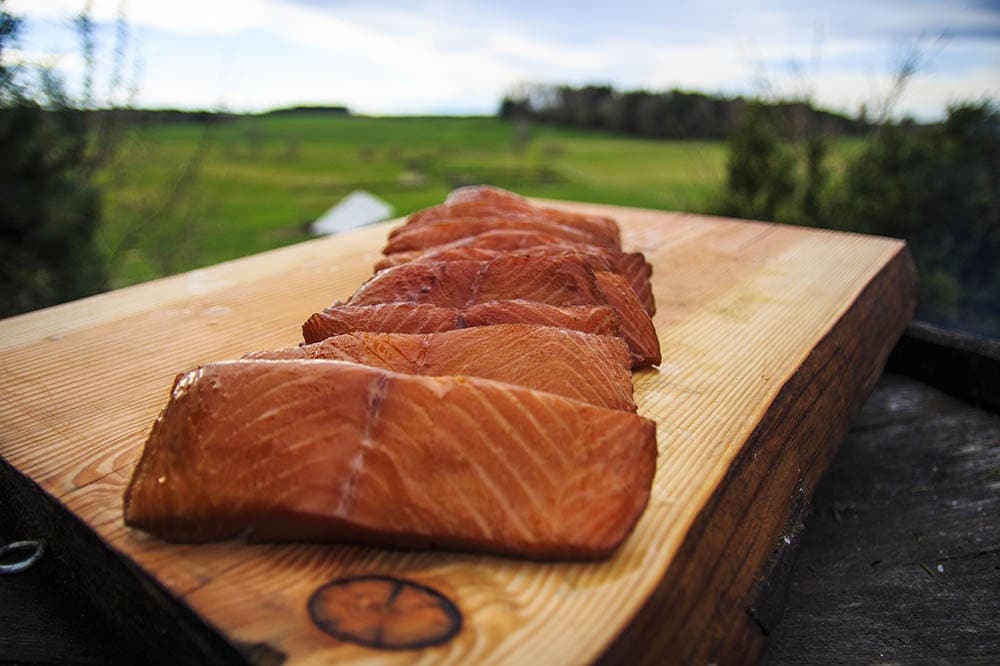
3. Bacteria and Parasites
Smoked salmon can contain bacteria and parasites that can cause various health problems in your canine. They typically affect your dog’s gastrointestinal system, causing clinical signs like vomiting, diarrhea, decreased appetite, and digestive problems.

Is It Safe for Dogs to Eat Smoked Salmon?
Theoretically speaking, smoked salmon is not toxic to dogs, so they can eat it, but that doesn’t necessarily mean this food should be part of your dog’s diet. It’s often high in salt and contains various seasonings that could harm your canine’s health. It’s also possible for smoked salmon to cause allergies, and it may contain parasites that can lead to salmon poisoning.
Salmon Poisoning in Dogs
Salmon poisoning can occur when your dog consumes raw, smoked, or improperly cooked salmon. After your dog consumes salmon infected with bacteria, the bacteria will access the bloodstream and slowly start to spread in the dog’s body.
Common signs of salmon poisoning in dogs include:
- Appetite decrease
- Vomiting
- Diarrhea
- Weakness
- Lethargy
- Fever
- Weight loss
It will take around a week after your dog eats the infected salmon to notice the first signs. However, the toxicity can progress rather quickly, and if the condition is left untreated, most dogs will die within 2 weeks.
Since prompt treatment increases your canine’s chances of survival, you’ll need to react quickly and take your dog to the vet, even if you only suspect that your dog ate improperly prepared salmon.

What Should You Do if Your Dog Eats Smoked Salmon?
Try to approach the situation calmly. If your dog consumed a small portion of smoked salmon, there should be no consequences, though you may notice that they have increased thirst. However, consuming large portions of smoked salmon could severely harm your dog’s health, which is why you should be cautious.
If your dog ingests large amounts of smoked salmon, monitor their behavior, and see if they develop any signs of allergies or toxicity. If you notice any changes in your canine in the 20–24 hours after ingestion, it’s best to consult your vet, who will determine if there’s a need for any treatment.

Frequently Asked Questions (FAQ)
How Can You Properly Prepare Salmon for Your Dog?
While your dogs shouldn’t eat smoked salmon, that doesn’t mean they can’t have any salmon in their diets. However, before you give salmon to your dog, you need to know how to properly prepare it to ensure that it’s both tasty and safe for your canine.
Salmon that you give your dog needs to be fresh, properly cooked, and bone-free to prevent choking hazards. It also shouldn’t contain any seasonings.
How Much Salmon Should Your Dog Eat?
When giving your dog any new food, including salmon, it’s best to consult your veterinarian about the most suitable amount. That said, there are general guidelines on how much salmon dogs should consume based on their size and weight.
Here’s a list of the recommended weekly amount of salmon that’s safe for dogs:
| Extra small dogs (2–20 pounds): | 1–2 ounces of salmon per week |
| Small dogs (21–30 pounds): | 2–3 ounces of salmon per week |
| Medium dogs (31–50 pounds): | 3–4 ounces of salmon per week |
| Large dogs (51–90 pounds): | 4–6 ounces of salmon per week |
| Giant dogs (over 90 pounds): | 6–8 ounces of salmon per week |

In Conclusion
Dogs can eat smoked salmon, but they really shouldn’t. Smoked salmon contains high salt levels and harmful seasonings and may even contain parasites and bacteria that could harm your dog’s health. If you want to include salmon in your dog’s diet, ensure that it is fresh, well-cooked, and bone-free.
Also, try to determine a suitable salmon portion size based on your dog’s size and weight, or consult your veterinarian for their opinion.
Featured Image Credit: David B Townsend, Unsplash
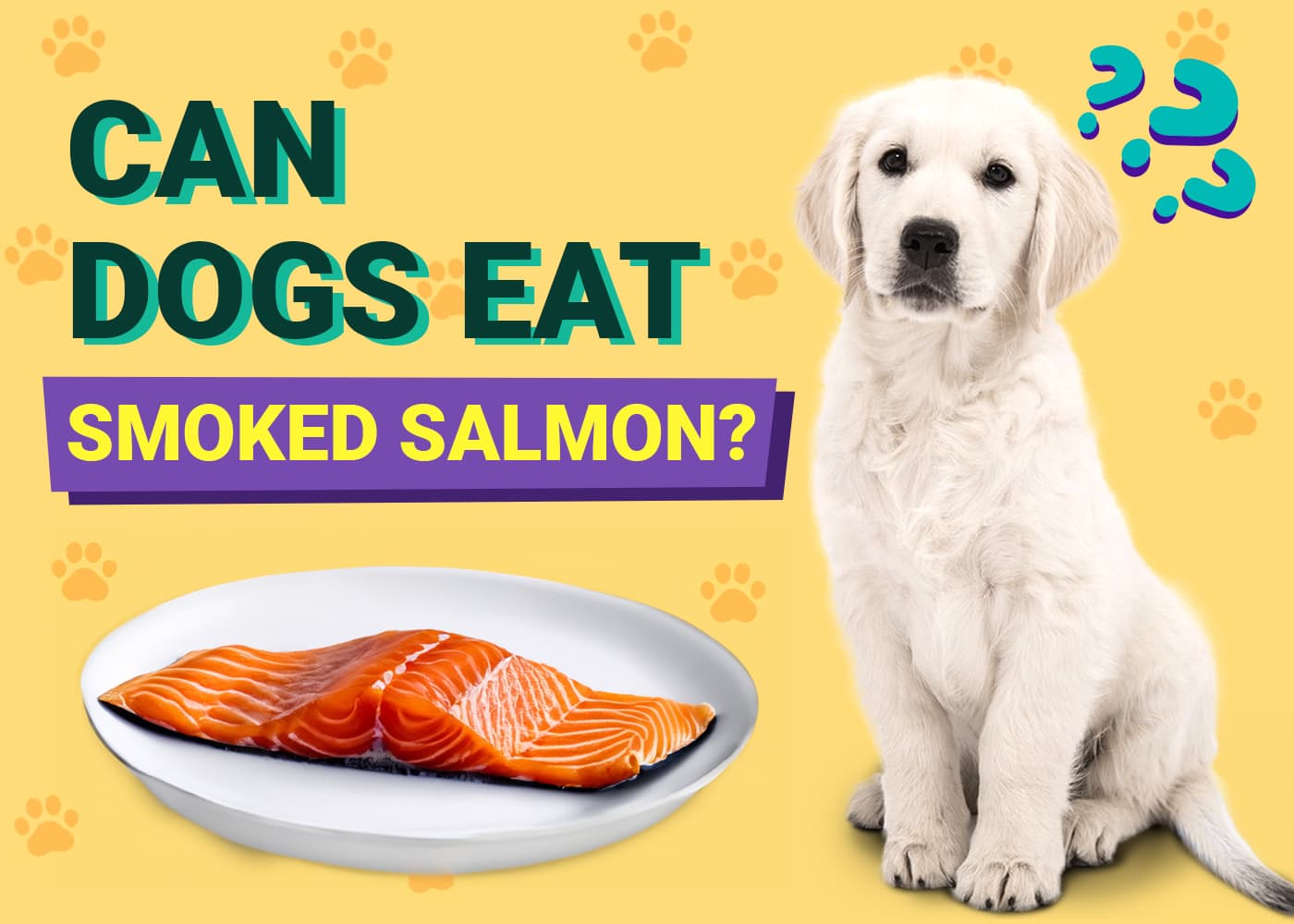

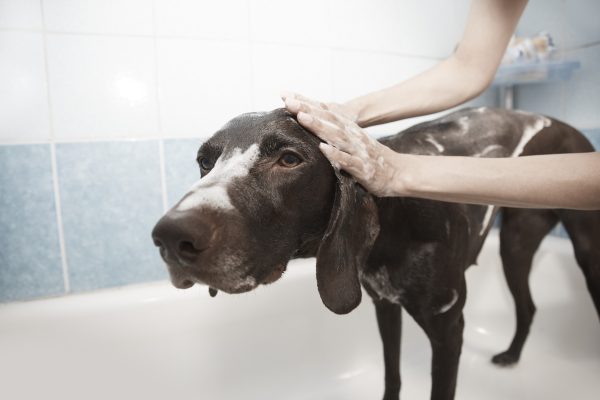
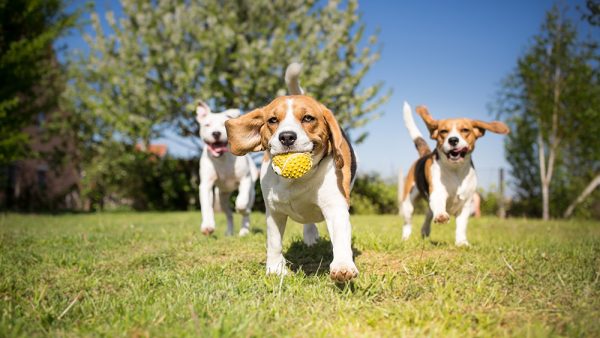






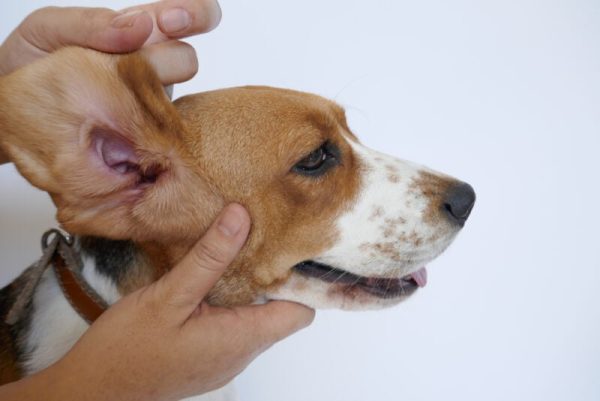
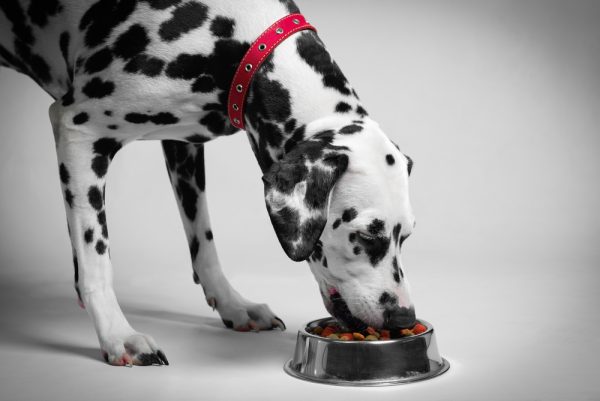
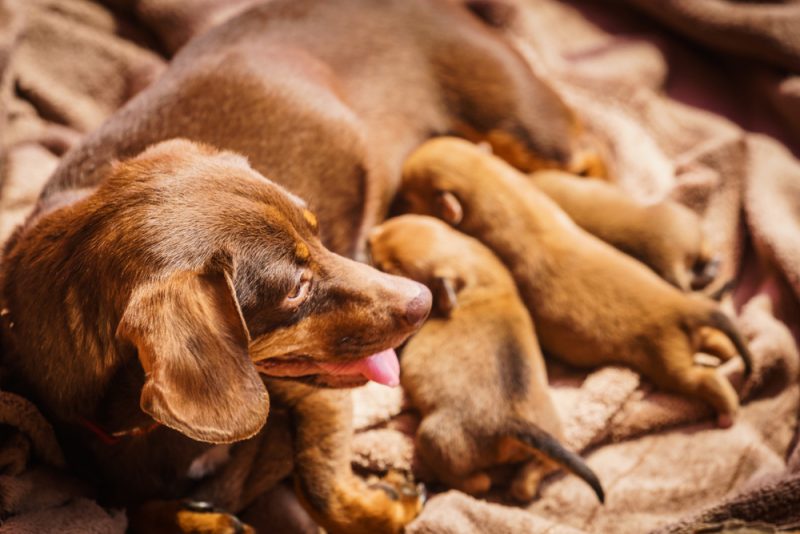

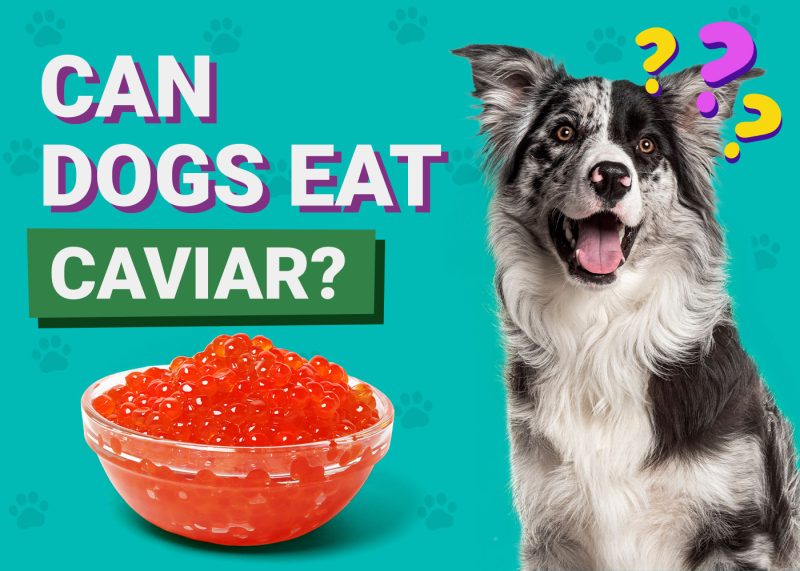

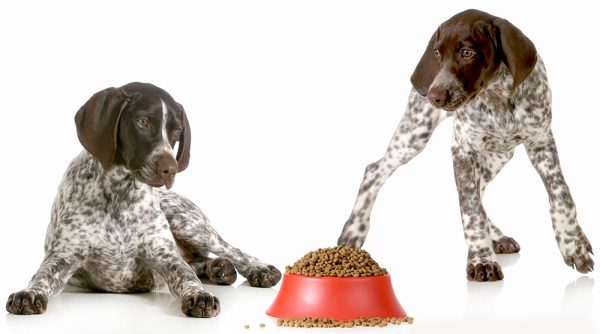
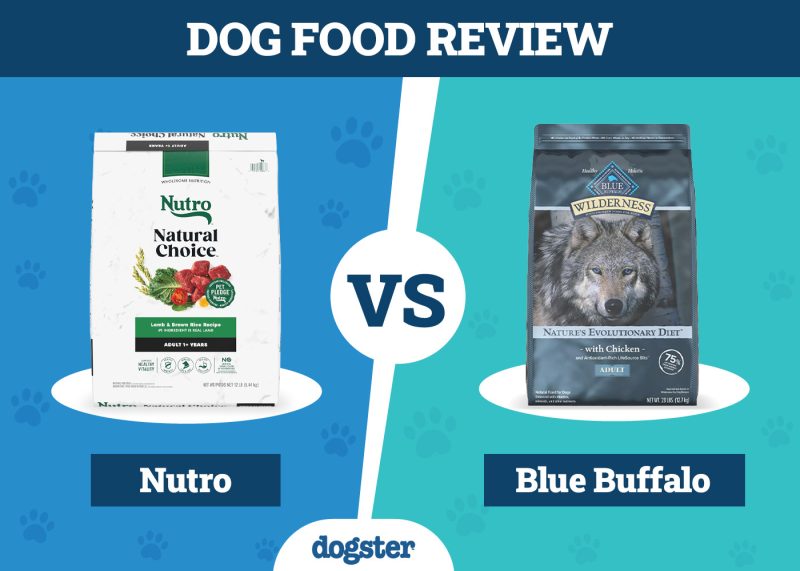




2 Responses
Ma petite chienne de 11 ans est très capricieuse.
Comme elle boudait sa nourriture( riz,carottes et poulet,avec quelques croquettes Hill’s) j’y ai .ajouté hier, quelques lamelles de saumon fumé et elle a tout mangé.Idem aujourd’hui,mais elle n’a mangé que le saumon! Ses selles sont normales,elle boit et urine bien et marche et court comme d’habitude.Que me conseillez- vous,puisque je lis que le saumon fumé est nocif pour les chiens? J’ai envisagé de la mettre à la diète,un jour ou deux.
Merci d’avoir la gentillesse de de me donner votre avis.
Hello there,
Thank you for your message and your concern about your dog's eating habits and the smoked salmon!
Since your dog is being selective with her food, and you are concerned about the safety of an ingredient (smoked salmon is generally not recommended for dogs due to high salt/fat content), this is a specific dietary and health question. We unfortunately cannot offer dietary advice, recommend specific products, or advise on matters like fasting in this comment section.
For a professional assessment of your dog's diet and selective eating, we strongly recommend you book a video call appointment with one of the licensed veterinarians at PangoVet.com.
Please visit www.PangoVet.com to book a consultation at your convenience.
Hope this helps!